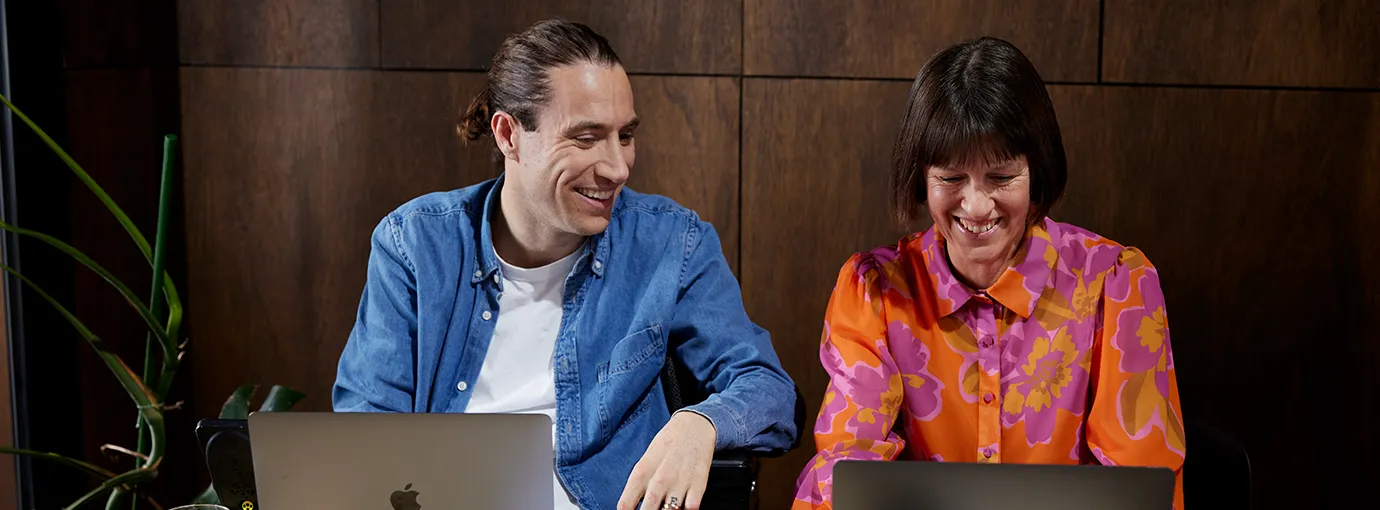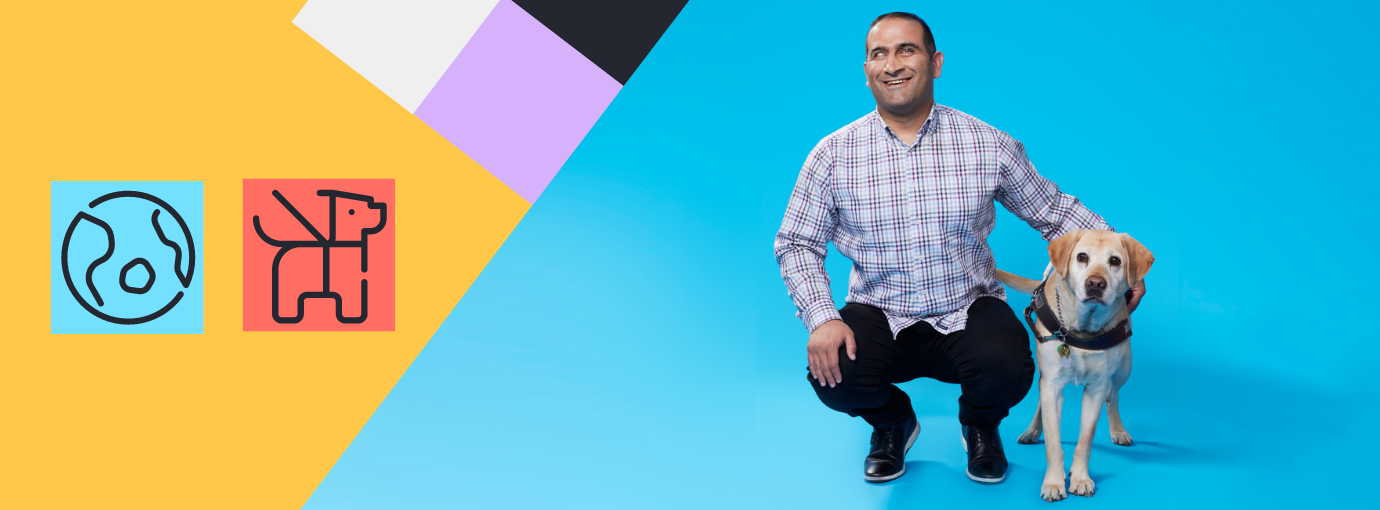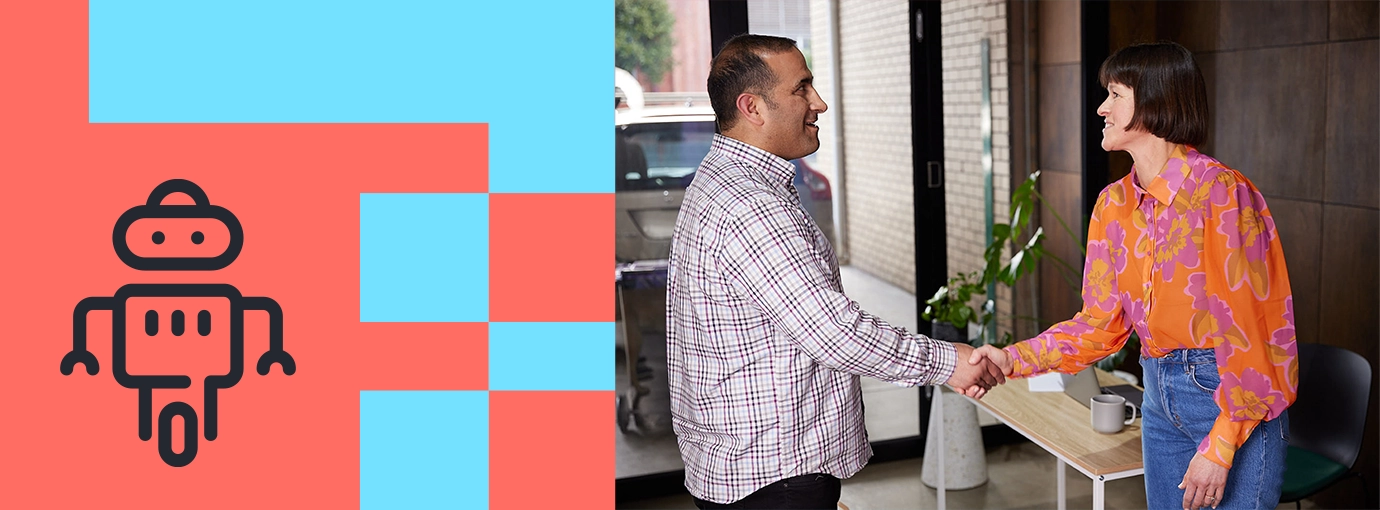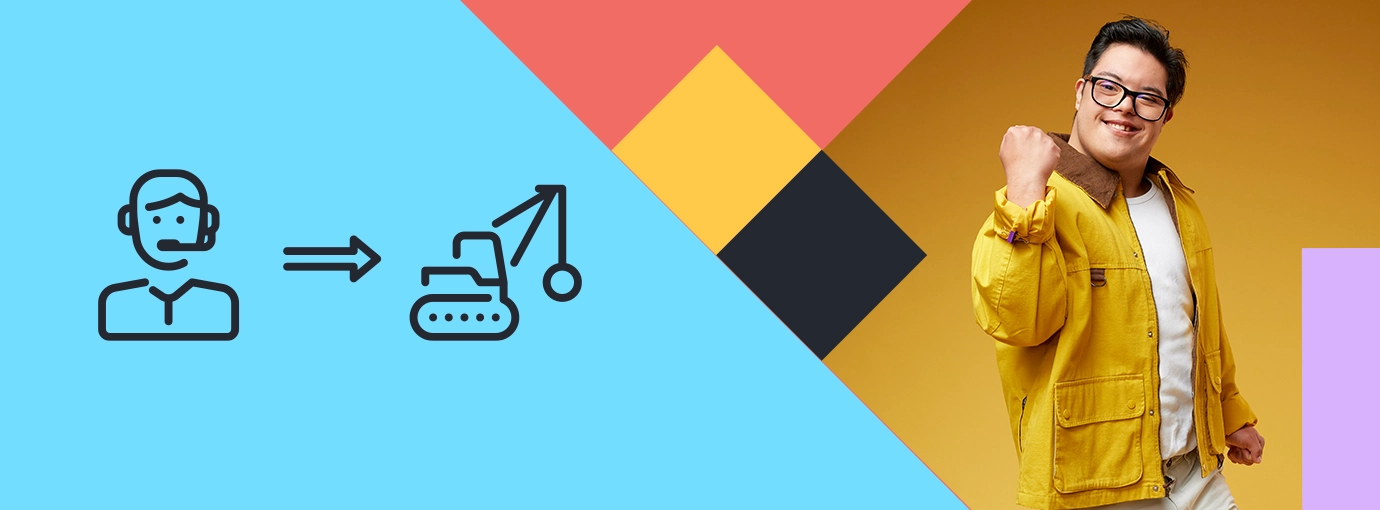Having a conversation about accessibility in the workplace doesn’t have to be awkward or uncomfortable. In fact, creating a professional space where candidates feel comfortable sharing their accessibility preferences is a sign of great company culture, and sets candidates up to perform their best. To take some of the guesswork out of it, here are five ways you can get the accessibility conversation started in an interview.
1: Ask about day to day tasks
Jumping straight into questions about someone’s accessibility preferences or requirements can sometimes seem abrupt. It can feel like asking deep, personal questions in the first five minutes of a first date. Starting with a question about how a candidate will perform the job can ease them into the conversation and give them an opportunity to include information about their disability, if they wish. Remember, for people with disability, talking about their disability in an employment context can be a sensitive thing to navigate. Asking how a candidate would approach day to day tasks is a good way to kick off the conversation naturally.
This is also a good opportunity to hear about a candidate’s strengths and weaknesses when it comes to completing the role. This can include whether the role can be adjusted to give candidates an opportunity to thrive. If a candidate has non-visible disability, you are also giving them the opportunity to bring up their disability themselves, before you start asking questions.
Questions for this can include:
- When collaborating on a project, how do you prefer to communicate with the team?
- What are you like working under pressure?
- What strengths do you feel you can bring to this role?
2: Adjustments and accessibility
Questions surrounding accessibility, such as “to do your best in this role, are there any adjustments or accommodations you need?” is all about setting candidates up for success. By giving candidates the option to speak to any accessibility adjustments they might need, you can set them up to perform to the best of their ability. When approaching this question, it’s important to remember that a person’s disability is a very personal and sensitive subject, and they may have had negative experiences when previously applying for jobs.
Instead of making assumptions about what someone can or can’t do, ask the person directly what they need. In some instances, accessibility adjustments such as wheelchair accessibility may seem obvious, but asking a candidate about their needs is a way of minimising any unconscious bias or misconceptions that can creep into the hiring process. Remember, people with disability know their disability best. If someone has non-visible disability, asking about accessibility can highlight the need for additions like quiet spaces.
Should the interviewee be a good fit for the job, the answer to this question will also allow you to prepare for their starting date. Making sure the office is set up and ready to go on someone’s first day is a way to show inclusive culture and start the employment off right!
We have put together “5 tips for a more disability inclusive workplace” that can help you make small and inexpensive accessibility changes to the workplace to maximise disability inclusion. If your organisation could use some help with adjustments and accommodations, Job Access provides grants to fund accessibility adjustments and training.
3: Two-way communication
We all have things we wish our boss would do to make our lives a little bit easier (no 8am meetings? Yes please!). People with disability are no different. Asking a question like “what can we do to make your job easier?” is not about what has to be done, but more about what could be done; it’s not “what can you do for us?”, but “what can we do for you?”. It’s important to be open minded and have two-way conversations to make the candidate feel valued. This can lead to higher employee retention, and means you’ll spend less time hiring and more time creating an inclusive and accessible workplace.
Making simple and inexpensive accessibility adjustments and being open to suggestions, helps to improve employee satisfaction as well as productivity levels. Examples of this may be making sure the kitchen kettle has clear bench space surrounding it, the hot water tap has a sound alert to let people know when water is boiling, or there is a water bowl for service animals.
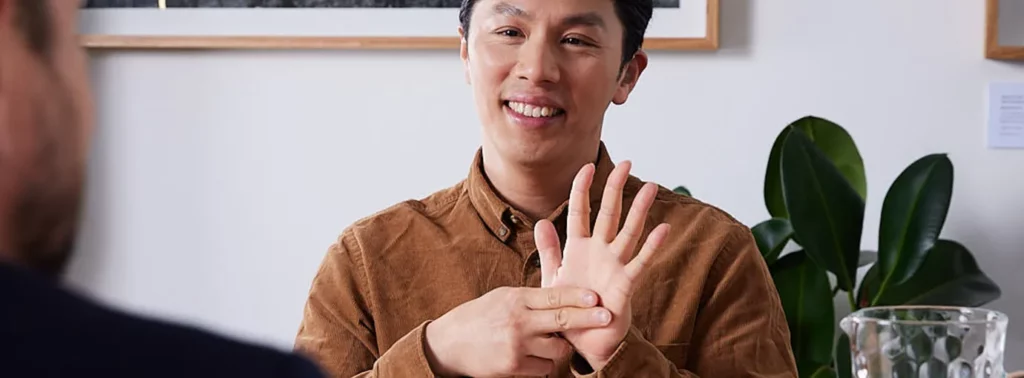
4: Communication Style
Have you ever just watched the phone ring because you hate taking phone calls? Well, people with disability have their own preferences when it comes to communication too. You can start with the basic question of whether someone prefers emails, texts, video calls or phone calls.
Making sure the language you’re using is the most inclusive it can be is a great way of opening up communication with candidates. Being flexible can maximise positive communication. If you’re interviewing someone who uses a wheelchair, you may like to ask them whether they prefer you to move to eye-level when talking to them or whether remaining upright is ok. For someone who is neurodiverse, you could ask whether they prefer you avoid sarcasm and euphemistic language. Language, communication and accessibility are personal preferences, which is why it’s important to ask and not assume.
5: Opening The Floor
Questions like “is there anything else you’d like me to know about you?” or “do you have any questions about the role?” are all about giving the candidate an opportunity to bring up any accessibility questions or concerns. See how the conversation is flowing and remember that the power of disclosure is with the candidate. They will let you know as much or as little as they’re comfortable with.
If you have further questions, you can always get in touch with the candidate- remember that any questions you ask have to be relevant to the job. It’s also important to remember that people with disability are not an encyclopaedia on all things disability and aren’t there to answer all your burning questions.
If you’re looking for your own resources, then the Department of Social Services has a list of National Disability Representative Organisations.
As with all interviews, getting to know a person’s personality and skills is key to finding out if they’re the right person for your organisation. Being able to have a conversation about accessibility will make sure that you’re setting candidates and your organisation up for success. Get started hiring on the Field today!
